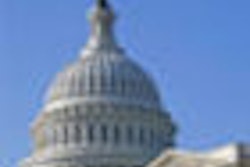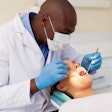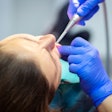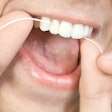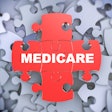
SAN FRANCISCO - A panel session yesterday at the American Public Health Association (APHA) annual meeting gave those outside the dental community a good overview of how the Affordable Care Act is expected to impact dental care in the U.S.
In addition to mandatory pediatric care, the healthcare reform law provides billions of dollars for programs that include oral health education and expansion of federal clinics that will provide dental benefits. But results of the upcoming presidential and congressional elections could drastically change how healthcare reform plays out, the panelists noted.
"Healthcare could change from night to day in the next three weeks depending on changes in the Senate and presidency," Myron Allukian Jr., DDS, MPH, a past president of the American Association of Public Health Dentistry (AAPHD), told the well-attended meeting.
“A significant amount of dollars will go toward dental services.”
Health and Human Services
The pediatric dental care component is projected to provide care to 3 million children by 2018, according to Herb Schultz, a regional director of the U.S. Department of Health and Human Services.
In addition, funding for the Children's Health Insurance Program (CHIP) Reauthorization Act was reauthorized until 2019, noted Eileen Espejo of Children Now, a nonprofit advocacy organization in California. The legislation provides health coverage for uninsured children who are eligible for Medicaid or CHIP but are not enrolled in the programs.
Some $10 billion is slated for the Public Health and Prevention Fund that will go to community health centers and federally qualified health centers (FQHCs). The program will include an oral health education campaign and also funding for alternative healthcare professionals, Schultz said.
Free preventive services for children will include risk assessment and fluoride varnishes and rinses to those who live in communities without fluoridated water.
Another $11 billion is planned to expand the number of FQHCs across the country, many of which will provide dental care, Schultz said.
And $10 billion is slated for Medicaid and Medicare pilot projects to improve changes in healthcare delivery.
As many as 30 million more Americans will be able to get medical coverage under the Affordable Care Act. Half will be eligible under the Medicaid program for the poor; the other half can buy coverage in the insurance exchanges set up by the states, Schultz said.
The U.S. Supreme Court upheld the healthcare overhaul law in June but decided that expansion of the Medicaid program is voluntary for the states.
"A significant amount of dollars will go toward dental services," Schultz said, noting that adult dental care could be included depending on how the states decide to expand Medicaid benefits for the poor.
By 2014, coverage cannot be denied to those with pre-existing conditions, state-based marketplace insurance exchanges will be operating, and the federal government will provide tax credits to buy insurance, Schultz said.
California was the first state to set up insurance exchanges.
Another component that will provide dental care will come through community transformation grants, said Vanessa Forsberg, a public health policy analyst with the APHA.




